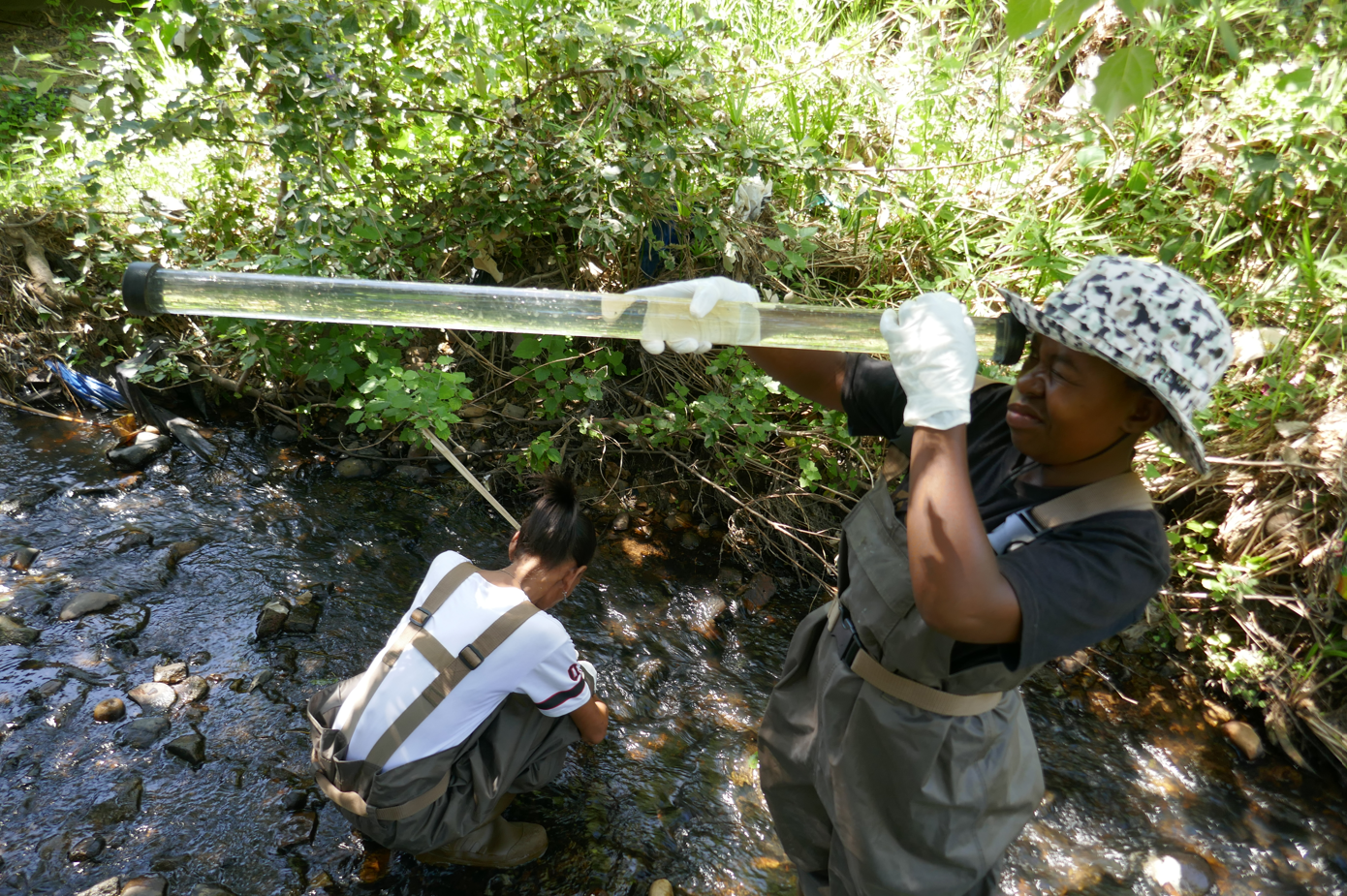Being a Citizen Scientist
Meet one of the river monitors, who is part of the UNESCO Be Resilient South Africa project. She has weekly monitored and gathered data on the river health at one of the selected sites along the lower reaches of the Eerste river since 26th January 2023.
While out on a river monitoring day, Cailin Mentoor from the Faure farm community shared “Being part of the biosphere project is interesting and wonderful because we always find something new and stuff we never thought would live here.” Since the start of the initiative, she has enjoyed connecting with people from other communities along the river. Learning how they are different and what they have in common. She continues, “And I love communicating with other people, it’s fun for me actually because I love to get to know who people are, what they like, what they don’t like, and whatsoever…” When asked what the relationship to water has become to her and what she hopes for her community, she comments: “We all need to stand together. Keep the rivers clean. Not littering. That’s one of the important [things] because we harm the animals that live in the water.”
Up until recent heavy rains, once a week, the community citizen scientists, accompanied by a CWBR facilitator, headed to the different selected sites to collect data. The PH, turbidity, dissolved oxygen, and macro-invertebrates (miniSASS) present are measured and noted down. Later, to be fed onto an app, which will become open-source with the aim to encourage inclusive adaptation management strategies between community, government, decision-makers, public and private stakeholders.
Shy to share amongst each other about how the river monitoring has impacted them, an anonymous survey was done with the group to share what they have achieved from their involvement thus far.
“I gained more knowledge and experience. I've benefited in many ways in the project, not only did I get to know how to be a citizen scientist but also to learn how to be myself.”
Stepping out of the river and into the wider community, the CWBR team together with the group will identify ways to share what has been learned and to convey positive messages around the relationship between people and nature, looking after the natural environment, and why keeping rivers clean is important.
When asked for ideas on how to reach their broader community, inspiration has been drawn for planning collaborative events.
“Let's talk to them about the importance of the river and its cleanliness.” And “Get them to the river and working with us on monitoring.”
“Gather youth to learn about water and the environment showing how important water [is] in our lives, how can we save it. Raising awareness to schools talking about water/environment. Gather elders of the community to be aware [of] what is going on in [the] water that we have, how to save, and keep the environment clean”.
To teach the kids about the importance of keeping the rivers clean. To organise a talk of the people.
And what continues to motivate them to be involved and participate in the project, one replied: “Because I want to gain knowledge and I also want to teach other children and if I go to their places they must say to their mom or dad or friend ‘Look, there goes Keira’.”
The citizen scientists have also been involved in co-creating and brainstorming skills development courses for further opportunity and knowledge. The aim is to capacitate them as community ambassadors for change and give them tools to best further their career and entrepreneurial opportunities which they have been exposed to in the course of this initiative.
Check out the Cape Winelands Biosphere Reserve contribution, about the launch of the Citizen Science initiative, as well as the project partner biosphere reserves updates, in the first UNESCO Regional Office for Southern Africa (ROSA) Be Resilient South Africa newsletter. As part of the UNESCO Be Resilient South Africa project - Biosphere Reserves as Observatories for Climate Change Adaptation in South Africa.



